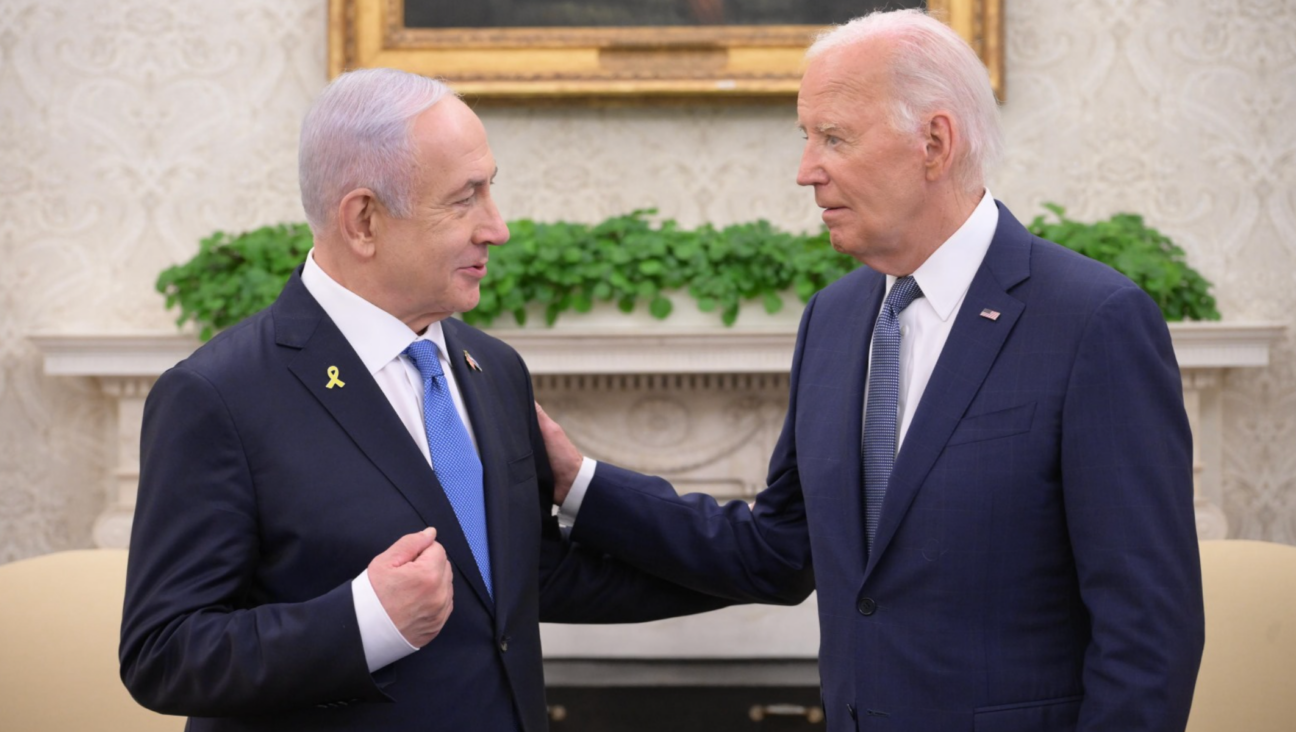Netanyahu: Islamic Extremism Makes Israeli Presence in West Bank Necessary

Image by Getty Images
Prime Minister Benjamin Netanyahu said turmoil in neighboring Arab countries counted out the removal of Israeli forces from the West Bank for “a very long time.”
Netanyahu, speaking Monday to the Institute for National Security Studies in Tel Aviv on the next steps in Israel-Palestinian peace, also outlined plans for a north to south border fence. His address came before the announcement that the bodies of three kidnapped Israeli teenagers were found in a West Bank field north of Hebron.
“Time after time, it’s been shown that after the withdrawal of Western forces, one cannot rely on local forces trained by the West to stop Islamists,” Netanyahu said.
He cited the rise of Hezbollah following Israel’s 2000 withdrawal from south Lebanon and of Hamas after Israel’s 2005 withdrawal from the Gaza Strip, as well as the recent gains by a terrorist army in Iraq in the wake of the 2011 U.S. withdrawal of troops from that country.
“My friends, it’s a fact, one that can no longer be ignored because of outdated diplomatic concepts, and because of it one must understand that in any future arrangement with the Palestinians, Israel must maintain security control of the area up to the Jordan River for a very long time,” Netanyahu said.
Talks between Israel and the Palestinians collapsed in April; one of the areas of disagreement was whether Israel could maintain a security presence in the Jordan Valley under a final status agreement. Palestinian Authority President Mahmoud Abbas said such an arrangement was unacceptable, although he was open to an international security presence.
“The forces of extremist Islam are already knocking on our door in the north and in the south,” Netanyahu said, and named the Iran-backed Hezbollah in Syria and Lebanon, extremist Sunni groups in Egypt and in Syria, and Hamas in Gaza.
“The first thing we must do is build a security fence in the east, build it in stages from Eilat to the fence we built over the last two years in the Golan Heights,” he said.
Israel has built similar fences in recent years along its border with Egypt and the Gaza Strip, as well as through parts of the West Bank.
A message from our CEO & publisher Rachel Fishman Feddersen

I hope you appreciated this article. Before you go, I’d like to ask you to please support the Forward’s award-winning, nonprofit journalism during this critical time.
We’ve set a goal to raise $260,000 by December 31. That’s an ambitious goal, but one that will give us the resources we need to invest in the high quality news, opinion, analysis and cultural coverage that isn’t available anywhere else.
If you feel inspired to make an impact, now is the time to give something back. Join us as a member at your most generous level.
— Rachel Fishman Feddersen, Publisher and CEO























